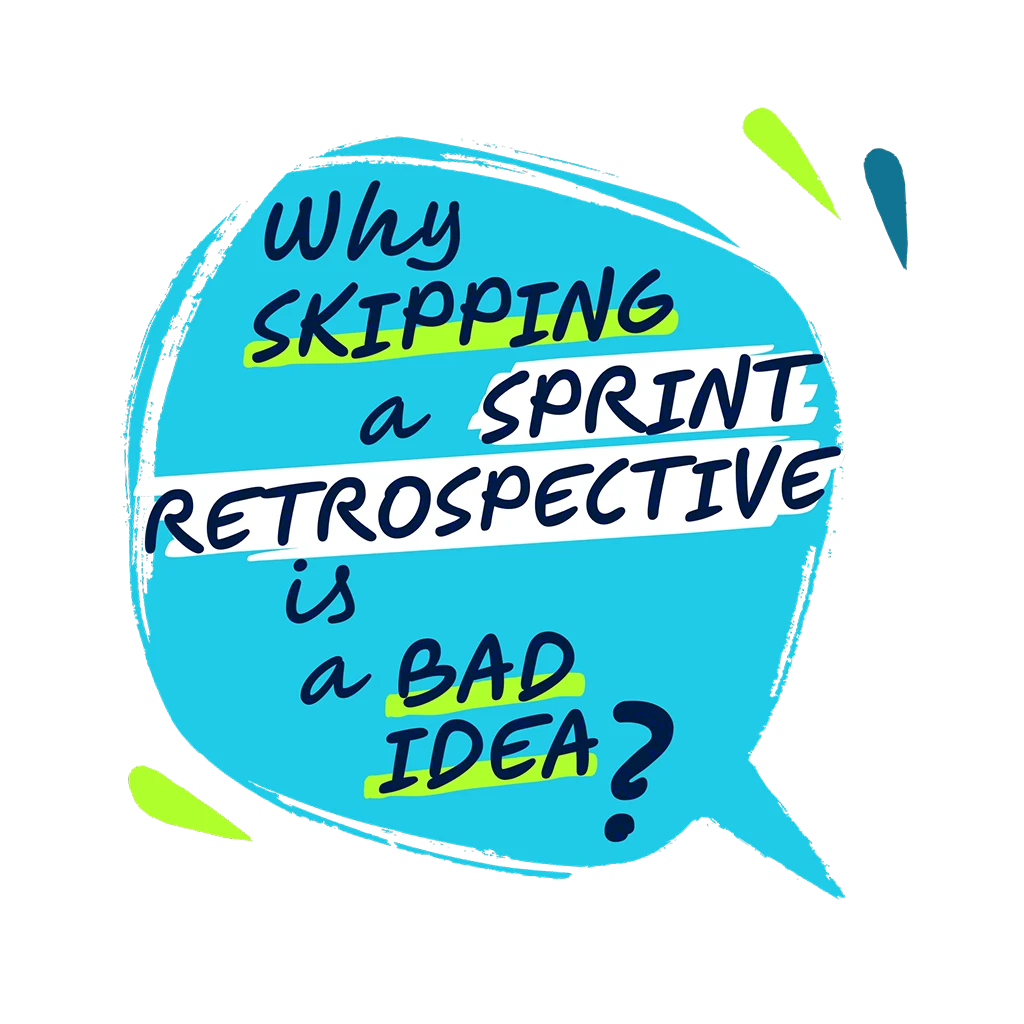An effective Sprint Retrospective ensures the team remains cohesive and aligned, leading to sustainable development and innovation. It is a dedicated time for reflection, learning, and improvement.
Skipping a Sprint Retrospective can be perceived as a time-saver in the short term, especially during busy periods. Still, the decision to skip a single Sprint Retrospective can adversely affect the team and the product’s development process. It’s not just a meeting, another scrum event, but a crucial investment in the team’s future performance that leads to the product’s success.
1. Continuous Improvement:
The Sprint Retrospective is essential for identifying what worked well and what didn’t in the past sprint. With this reflection, teams can iterate on their process. This continuous improvement cycle is fundamental to avoiding stagnation and repeating past mistakes.
2. Team Morale and Culture:
The Sprint Retrospective fosters a culture of openness, trust, and mutual respect, where every team member can voice their opinions and concerns. It’s a space where the team can celebrate successes and collectively navigate challenges. Skipping even a single session can undermine team morale and erode the culture of continuous feedback and collaborative problem-solving.
3. Risk Management:
By regularly examining past actions and outcomes, teams can proactively identify potential risks and devise mitigation strategies. The Sprint Retrospective is a crucial forum for this kind of risk assessment. With it, teams may be prepared for foreseeable issues, leading to unnecessary conflicts and stress.
4. Adaptability and Flexibility:
The Sprint Retrospective allows teams to reflect on their practices and make necessary adjustments. For example, it’s the best place to inspect and improve your Definition of Done, if needed. Skipping it means losing a touchpoint for adaptation, which can result in the team’s processes becoming rigid and outdated, decreasing their ability to respond to changing demands or challenges.
5. Stakeholder Engagement and Satisfaction:
The Sprint Retrospective is a forum to discuss improvements in efficiency, product quality, and risk management, contributing to incredible value. Neglecting it can lead to a disconnect between the team’s output and stakeholder expectations, potentially harming the product’s success.
6. Knowledge Sharing and Learning:
The Sprint Retrospective encourages sharing and collective learning, allowing team members to share insights, learn from each other’s experiences, and disseminate best practices. It is a collaborative learning environment vital for personal development and team cohesion, where opportunities for growth and innovation may flourish, helping the team to reach its full potential.
The Sprint Retrospective’s value is building a resilient, adaptive, and cohesive team capable of consistently delivering exceptional results.
Committing to this reflective practice enhances their effectiveness and fosters a supportive environment where innovation thrives. Skipping it risks the ability to learn, adapt, and grow in an ever-changing landscape.


